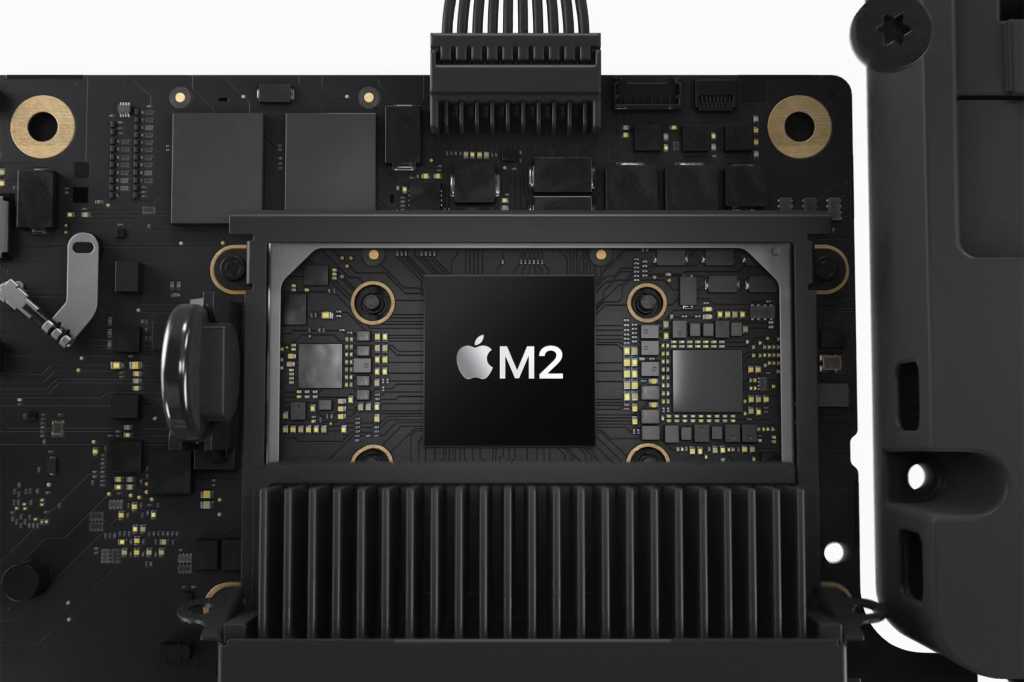Here at Macworld, we tend to recommend that customers not buy the entry-level configuration of any Mac. It generally doesn’t have enough storage for most people, even people who rely heavily on iCloud or other cloud storage will likely run into space constraints down the line.
But there’s another reason why you might want to avoid the entry-level configurations of Apple’s latest Mac minis and MacBook Pros, which went on sale Tuesday. While the new $599 M2 Mac mini is a very nice computer at a great price, it hides an ugly secret we’ve seen before: a slower SSD. MacRumors reports that benchmarks of the machine show that the 256GB SSD is up to 50 percent slower than the 256GB SSD in the M1 model it replaces.
The reason for the slowdown is the same as with the 256GB SSD in the 13-inch M2 MacBook Pro and M2 MacBook Air: Apple uses a single NAND chip in the SSD, while the M1 Macs they replaced used two NAND chips. YouTuber Brandon Geekabit confirmed that Apple uses one NAND chip in his teardown of the M2 Mac mini.
A single chip might be good for Apple’s space-challenged engineers, but when it comes to SSD storage, there’s a general principle that affects performance: an SSD uses multiple channels in parallel to read/write data to an SSD’s NAND chips. The more chips that are in play, the more channels that are available, and the more channels available, the better the performance.
Somewhat surprisingly, the new base configurations of the MacBook Pro are also affected, despite having a 512GB SSD. 9to5Mac reports that in its testing and teardown of the 14-inch MacBook Pro with a 10-core M2 Pro processor, the SSD is compromised of two 256GB NAND chips, half as many as found in the 512GB SSD in the M1 Pro model. And as a result of the fewer chips, the 512GB M2 Pro MacBook Pro has slower SSD performance than its predecessor. We assume the entry level 16-inch MacBook Pro, which also has a 512GB SSD, has the performance issues as well.
While we can understand the decision to use fewer chips in the lower-end Macs, the new MacBook Pro starts at $1,999 and is expected to be the ultimate in performance. Most users who buy one want the fastest speeds in all aspects of their machine.
After four models, it’s clear that Apple has decided that the speed sacrifice is just something customers will have to live with when it comes to the cheapest configuration of its Macs. Granted, most users won’t feel the difference in everyday use and will only notice it the slowdown when using software that needs to read files from the SSD frequently–but we recommend getting at least a 1TB SSD anyway so there are enough data channels in use to make the speed difference unnoticeable.

